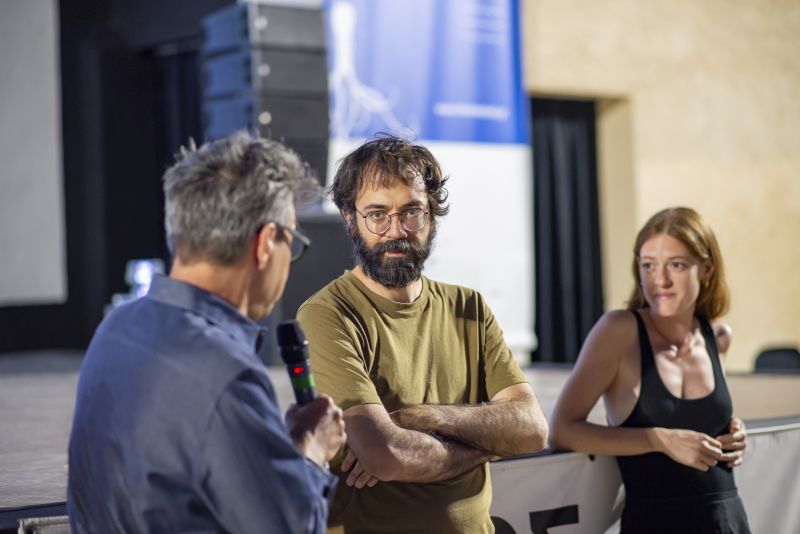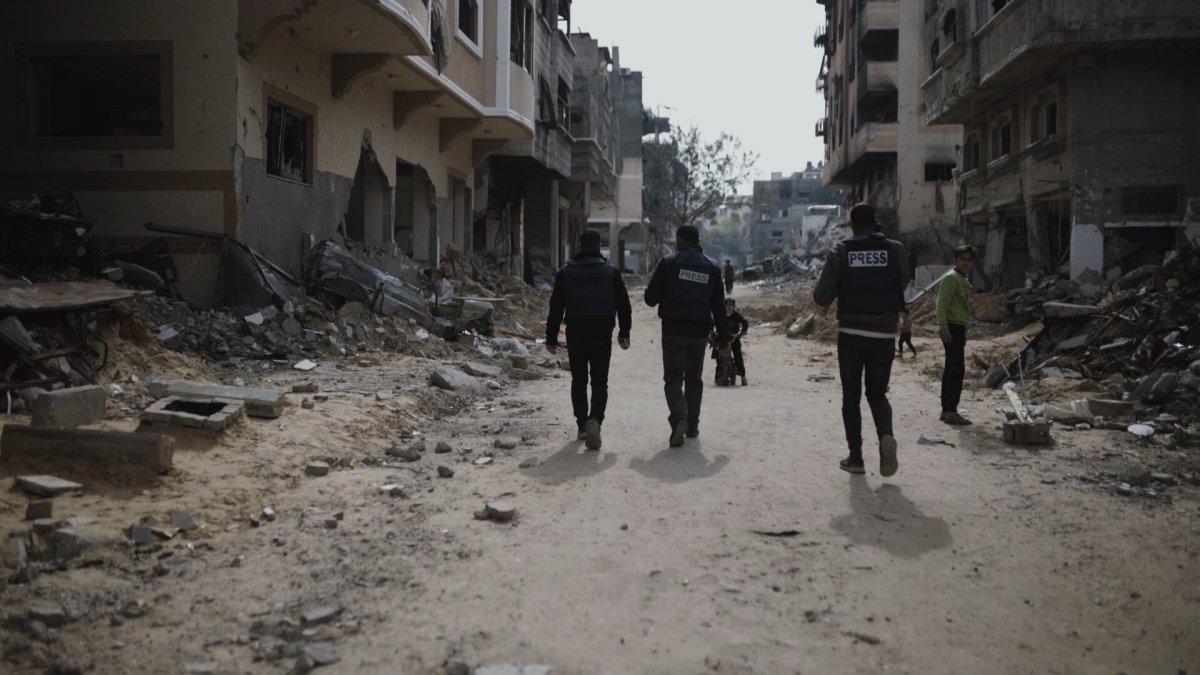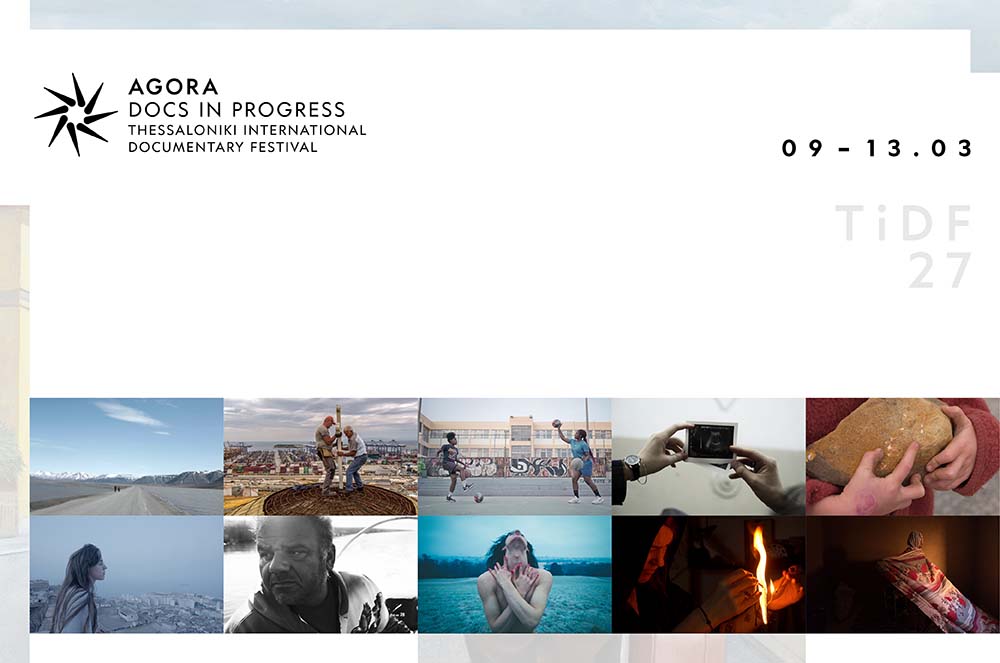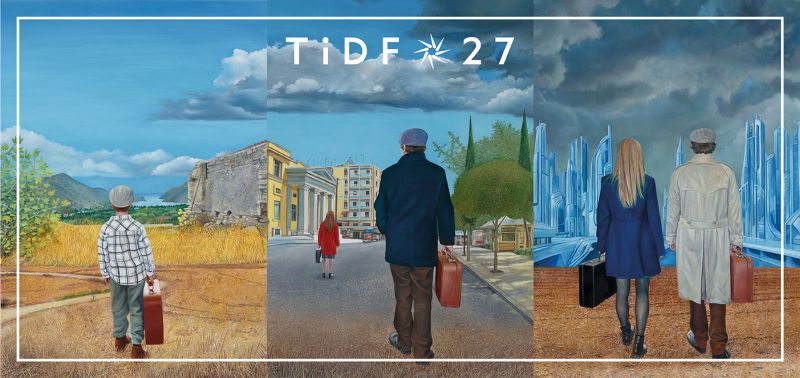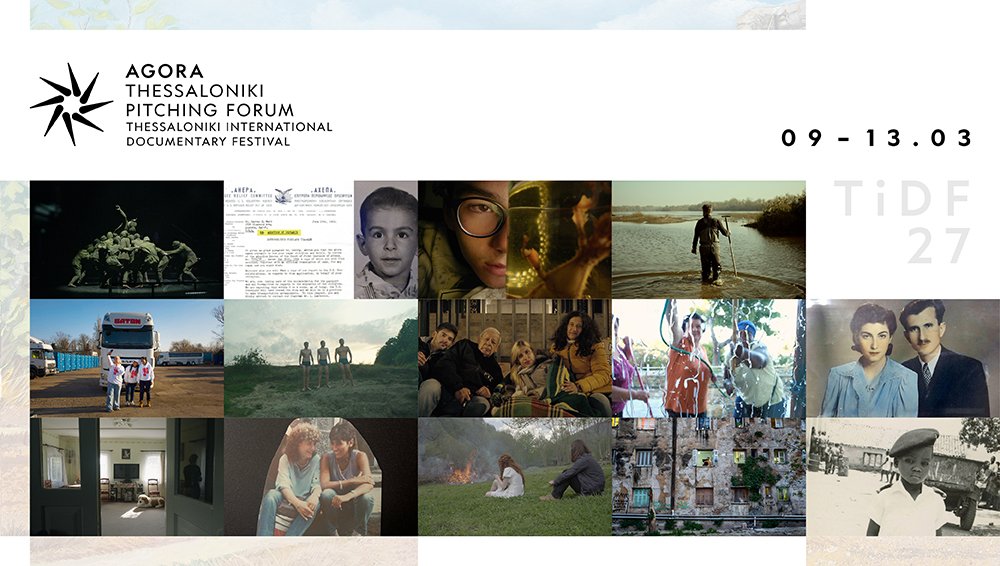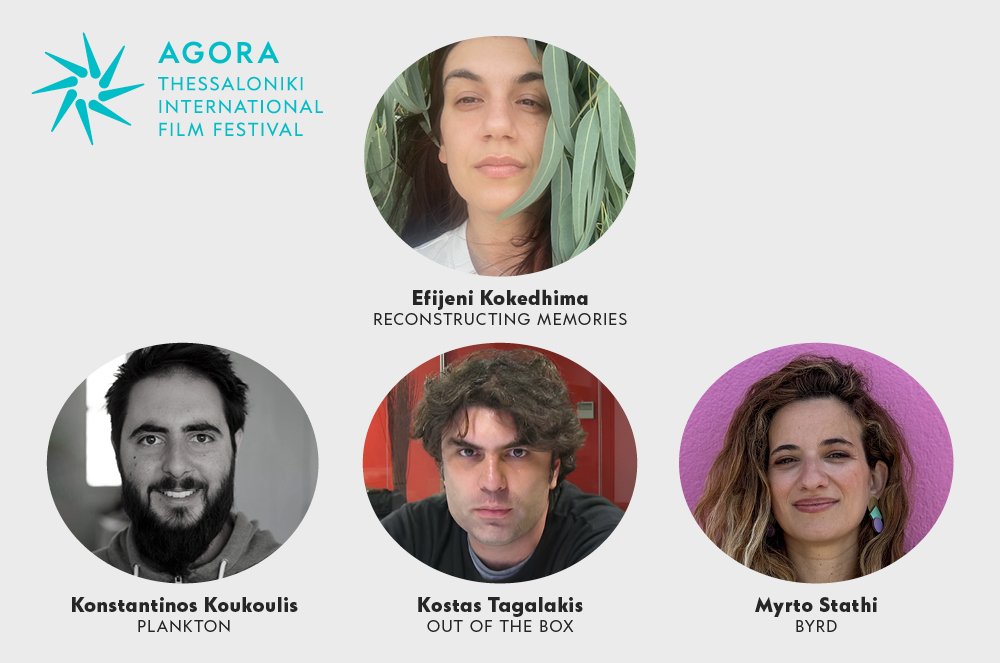On Wednesday evening the screening of the Alexandros Voulgaris’ film, Winona, at Cine Apollon, in Edipsos, in the presence of the film’s director and lead actress, Sofia Kokkali. Just before, the screening of the short film Konstantinos Antonopoulos’ Postcard from the End of the World had taken place.
Orestis Andreadakis, the Festival’s Artistic Director presented Alexandros Voulgaris and Sofia Kokkali, welcoming the audience to the screening: “Both of these films are set on a beach, because this year's theme is water: seas, lakes, rivers, rain," he said. He even referred to the collaboration between Alexandros Voulgaris and Konstantinos Antonopoulos in the past.
“I met Konstantinos 20 years ago,” Alexandros Voulgaris said, prefacing the film Postcards from the End of the World. "It’s interesting because throughout the years Konstantinos was looking for something very much his own, and simultaneously something that spoke for our epoch, to create something fundamentally contemporary. This film, a very good film I might add, has in its own way achieved what Konstantinos was seeking: it is at the same time personal and remains close to the times we live in. It is a very enjoyable film and very particular in the way it utilizes its media."
For his own film, Winona, he mentioned: “"We shot the film in May 2018, on a beach in Andros. It was a very important film for several reasons, for all of us who made it. A film we had to make. Because we want to make every film, but some of them we could have done without."
A Q&A with the contributors of Winona followed the screening of the two films.
In response to a question about how the creative pieces of Winona were gathered, Alexandros Voulgaris replied: “There are filmmakers who prefer to change partners every film in order to renew themselves, and there are those who try to create stronger ties. I belong to the second category. From the film that preceded Winona, Thread, a lot of individuals were integrated to the team. We, the main partners, work ten years together.”
Regarding the element of improvisation, he noted “the film was built in its entirety around the girls and it was rehearsed very little.” At this point, Sofia Kokkali took the floor: “Alexandros is used to writing everything down. Everything we see in the film is written word for word. But there was also a creative space and improvisation, more in relation to the movement. For the most part, everything was written." Alexandros Voulgaris added: “You may have written something but how the other person conveys it is what makes the whole film. The entire tone of the film has emerged from how the girls perceived the script and their relationships with one another. It's also shot on film, during a period of only seven days, while the average feature film needs 25-30 days. The girls' input was very important. It was important that I have four actresses, not only talented but also confident."
Then, the filmmaker replied to a question from the journalist Aris Dimokidis on how he manages to speak to the female soul, writing the script utilizing the female gaze: “I'm not sure if I manage it. I'm not trying for something like that. I don't think whether a woman or a man would really do what I think about. I write things I want to see and that I want to be said. The fact that many of the characters I write are women has to do with many things, personal factors, and it is something I would discuss with my therapist if I could afford to continue the sessions. It definitely has to do with the people I want to work with, like Sofia, and as such I need female characters. It's just words that need to be said and they are said by people who have the personality and taste to get it right," she added.
On the reasons behind the film, she remarked: "For some reason, almost everyone who made this film was just in the right state for something like this at that time. Films are an expensive sport and many of them are just for commerce and entertainment. This one had no such ambition, it was created strictly due to personal reasons. It had much to do with managing loss, with the fact that we would like to say a final goodbye to our close ones in a more personal manner than the formal one, the funeral. Thus, this informal “funeral” was created. For me, the film in its entirety is a funeral, a farewell,” he noted.
Finally, in response to a question about why the film was shot on a beach and not in any other place, she replied: "Too many of the choices you make in a film correspond to the choices you make in your life. For example, the color you will paint the walls of your room, or the people you will choose to have beside you, it’s not a decision you make based on some kind of logic – it just fits. That was how this script came about, because it fit me. Ever since I was a kid, I've had a longing to make a film on a beach, since the time I watched Roman Polanski’s Knife in the Water, and Cul-de-sac, films that had a lot to do with water,” she concluded, while simultaneously referring to the theme of this year’s Evia Film Project.


